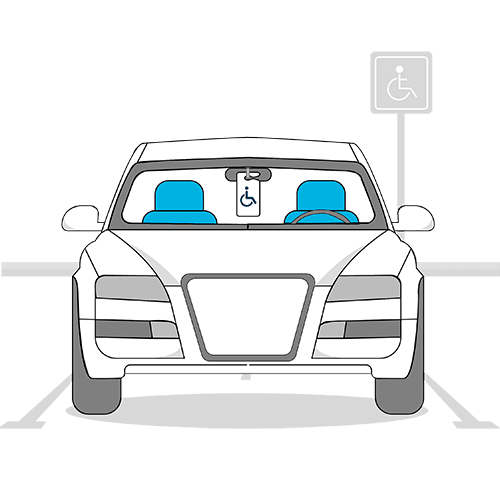December 2023 saw the release of the long-awaited National Disability Insurance Scheme review. With many changes proposed – the NDIS scheme review makes 26 recommendations and proposes 139 supporting actions for improvement – you’ll be anxious to know how this will affect you. Our blog is here to help with that.
Below, we take a look at exactly the review is, what the main points were, and what you can expect going forward.
In this article
Why was a review needed?
The review is part of a wider government focus on an NDIS reboot to reform the scheme. Led by Bruce Bonyhady and Lisa Paul, the aim of the NDIS review is threefold:
- To look at the scheme’s budget
- To put people living with disability back at the centre
- To restore trust and confidence in the NDIS
Since it started in 2013, the scheme has grown much faster than expected. As of March 2023, it had already passed its full-year forecasts, reaching 592,059 people – higher than the 592,294 projected for the 2022-23 financial year (i.e. ending 30 June 2023).
This rapid growth is partly due to a significant number of children with autism entering the program. Related to this, in March 2023 access to the NDIS Early Childhood Early Intervention Program was extended from children aged up to 7 years to those aged up to 9 years, providing greater coverage over children’s core developmental stage.
Another weight on the scheme has been the problem of dishonest service providers rorting the system and mass NDIS fraud, which the review addresses.
Unsurprisingly, some of the review’s finding are complimented by the Disability Royal Commission report tabled in September 2023.
The widespread research involved
According to the NDIS, the final report is “among the most comprehensive and accessible Commonwealth reviews in history.”
The independent panel responsible for it visited every state and territory in Australia, and engaged directly with over 10,000 Australians. The panel also captured more than 2,000 personal stories and received close to 4,000 written submissions.
With Australia’s National Cabinet agreeing to action the legislative NDIS changes, it’s hoped the scheme will more fairly and better support people with permanent and significant disability. Speaking of fairness, read about what to do if you spot NDIS fraud.

What are the recommendations for these NDIS changes?
As mentioned, the NDIS scheme review makes 26 recommendation and proposes 139 supporting actions. Here are some key points:
NDIS changes: Renewed focus on functional impairment
One of the key aspects of this report is that it recommends the NDIS returns to its original function. This is to provide support for those with a functional impairment, rather than focus on those with a diagnosis.
In other words, people won’t automatically qualify for the scheme based on having a condition. Instead, they will need to show how their disability impacts their daily life.
“It’s no longer about what your label is, but how your impairment affects your life,” says Disability Services Minister Bill Shorten.
NDIS changes: Stronger foundational support
The scheme review panel want more services to be provided outside of the NDIS, with funding split 50/50 between the state and the federal government.
A key recommendation is the creation of “foundational supports”. These are a separate tier of disability services that will be open to a broader range of people with disabilities, not just those eligible for the NDIS.
In practical terms, foundational supports could include services provided through schools and early childhood centres. More support for children in their everyday environments where they live, play, and learn, without needing an individual NDIS plan. This will allow for broader early intervention and support for children living with disabilities.
The aim is also to ease the demand for professional diagnoses and reports that are currently required to join the NDIS.
NDIS changes: Attracting more disability workers
There’s a need for more disability support workers in Australia, with an estimated 128,000 extra workers needed by June 2025. This is crucial to meet the growing demand for NDIS services.
To improve the situation, the review panel suggest several ways to attract and retain workers in this sector, including:
- Developing portable leave and training schemes
- Implementing better worker screening processes
- Offering minimum online training for workers
- Forming partnerships with First Nations and remote communities for developing community-led approaches

NDIS changes: Registering all NDIS providers
A big recommendation is that all NDIS service providers should be registered. This measure aims to ensure greater accountability and quality control.
The panel suggests that the level of regulation for providers should vary based on their risk level, to help ensure transparency and safety in delivering services.
NDIS changes: Introduction of an independent pricing system
The review suggests that the Department of Social Services develop a new NDIS pricing and payments framework to find better ways to providers.
The National Disability Insurance Agency (NDIA) and the Independent Health and Aged Care Pricing Authority will jointly manage the new system, working together to make the pricing clear and predictable. They will also make sure that the services and their costs match up well.
NDIS changes: Bringing in navigator roles
The introduction of ‘Navigators’ is proposed to assist both NDIS participants and non-participants. These agents, independent of the NDIA, will help people find and coordinate the support they need, connecting them with mainstream services, community supports, and foundational supports.
How will these NDIS changes affect me?
With so many changes listed, the authors of the report have recommended a five year transition process to making these NDIS changes. This will include building up mainstream disability services and foundational supports outside the NDIS for those who can’t access the scheme.
“Changes to access and budget setting processes for children and young people should only be implemented once widespread foundational supports are in place,” says the report.
The Australian government is due to respond to the report this year, at which point actions going forward will be clearer.
Insurance for your independence
Regardless of NDIS changes, the need for reliable, value-rich insurance for your mobility equipment remains the same. After all, your mobility device is key to your independence.
That’s why Blue Badge Insurance recommends protecting them for accidental damage or theft inside and outside the home. Having wheelchair insurance and mobility scooter insurance helps you pay for repairs or replacement if you need to.
As Australia’s first disability and independence insurance specialist we know your car is invaluable too. That’s why we offer up to 25% off car insurance for wheelchair accessible vehicles and disability car insurance.
Click below to get a quote.








